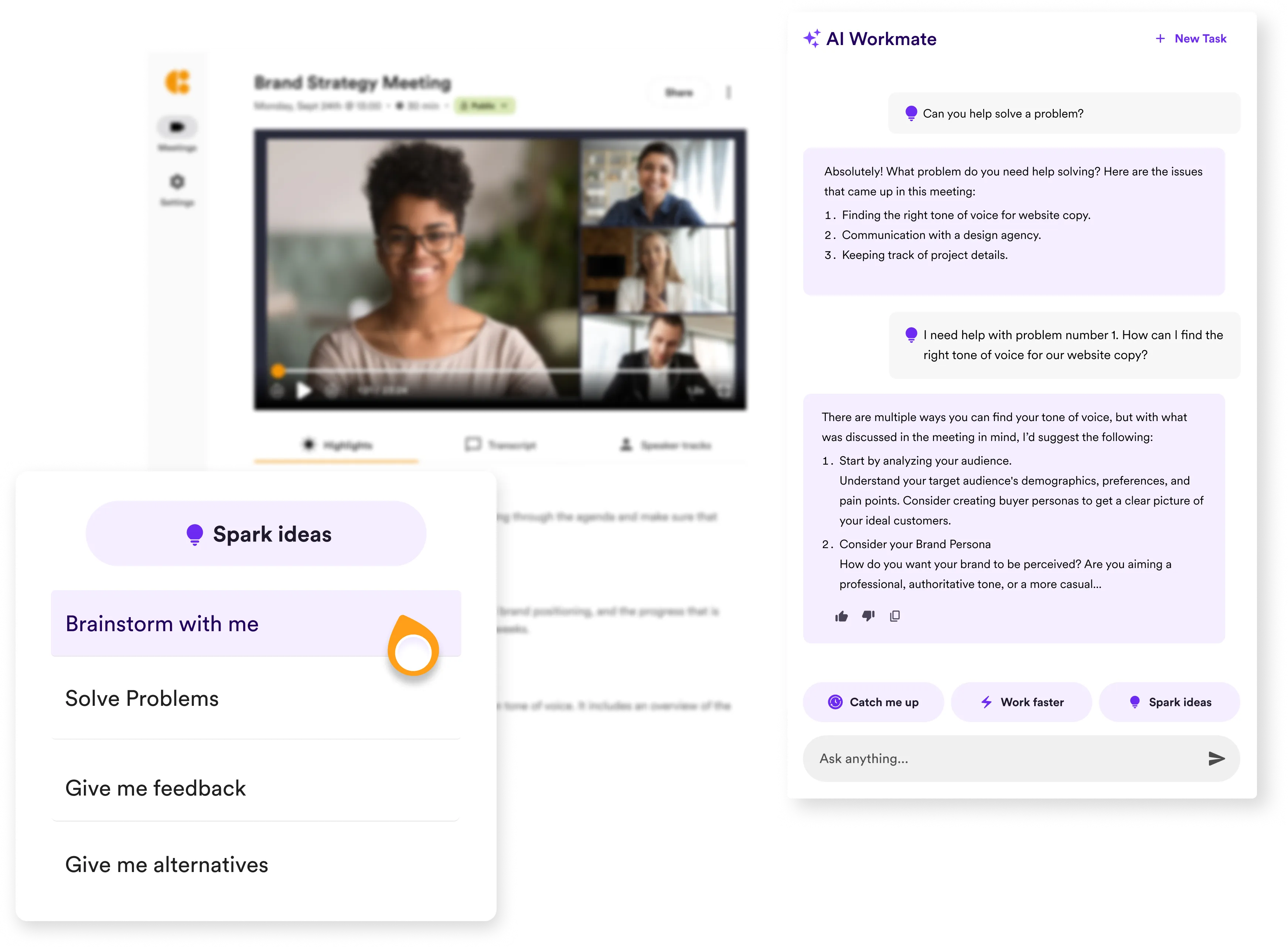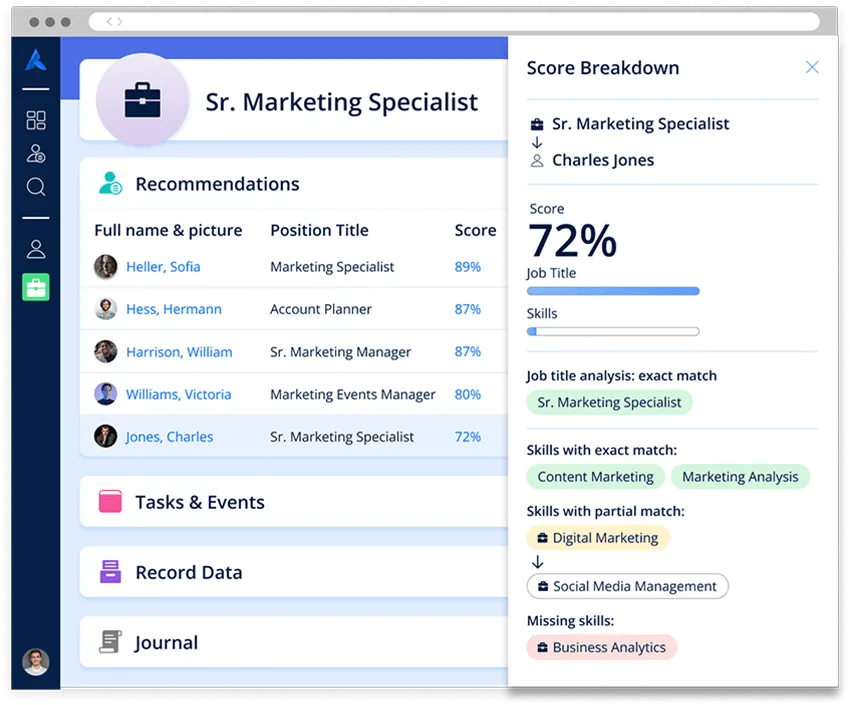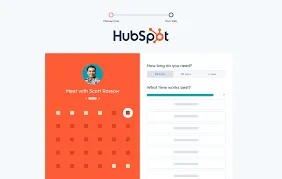How to End an Interview as an Interviewer

The last few minutes of your conversation can make or break the candidate’s perception of your company.
Rushed or awkward endings can leave candidates with doubts, while a thoughtful close ensures they walk away with a positive impression.
This article will guide you through mastering this essential part of the interview.
Why the End of an Interview Is a Crucial Moment

The final minutes of an interview often shape how the candidate feels about the entire process. The candidate is desperately looking for clues to understand where they stand.
This is why it’s so important for you to be clear and professional in your communication.
Even if the candidate isn’t right for the role, ending the interview on a professional note helps build your company’s reputation. You want them to walk away with a positive impression. Thanking them for their time, explaining what happens next, and ensuring they feel respected will contribute to a better candidate experience overall.
Tips to End an Interview on a Good Note

Here are some practical tips to ensure you end an interview on a positive note:
Signal that the interview is wrapping up
As the interview nears its end, it's important to clearly signal this to the candidate. You can use simple phrases like, “We’re almost out of time, so let’s wrap things up,” or “We’re nearing the end of our conversation.” This sets the expectation that the interview is coming to a close and prepares the candidate for the final moments. Avoid rushing through the last few minutes, as it can make the candidate feel unimportant or leave them unsure about what happens next.
Give the candidate a chance to ask questions
Before concluding, make sure to ask, “Do you have any questions for me?” This gives the candidate a chance to clarify any doubts they may have about the role or the company. Their questions can also offer you insight into what matters most to them, such as company culture or advancement opportunities. I
Be transparent about the next steps
One of the most frustrating parts of the interview process for candidates is not knowing when or if they will hear back. Clearly outline what the next steps are. For example, you can say, “You’ll hear from us within the next week regarding the outcome,” or “We’ll be conducting second interviews, and we’ll contact you by email if we decide to move forward.” This helps manage expectations and reassures the candidate that they will be kept in the loop.
Maintain a neutral tone
Even if you feel confident about a candidate, avoid making definitive statements like, “You’re perfect for this role,” or “I’m sure we’ll see you again soon.” It’s best to keep things neutral until all interviews are completed and final decisions are made. Overpromising could lead to disappointment if things change during the selection process.
End with a thank you
Finally, thank the candidate for their time and interest in the position. A simple, “Thank you for coming in today” or “We appreciate your interest in our company” leaves a positive impression. Ending with a handshake (or a wave in virtual interviews) and walking them out of the room or signing off properly shows respect and professionalism.
What to Focus on Right After the Interview

Once the interview is over, your work doesn’t stop there. What you do immediately afterward is also crucial for making the right hiring decision :
Take notes while everything is fresh
As soon as the candidate leaves, take a few minutes to jot down your thoughts. Capture your impressions of their answers, their demeanor, and how well they aligned with the job requirements. If you wait too long, details can become fuzzy, and you might mix them up with other candidates. These notes will be vital when you review all the candidates later, helping you remember key strengths or concerns that you discussed.
Organize your thoughts
Create a clear system for evaluating candidates. Many interviewers use a scorecard or checklist to rank candidates based on their skills, culture fit, and overall interview performance. This will help you compare candidates and easily measure your recruitment KPIs to make your decision-making process consistent.
Move the process forward
Decide what the next steps are for each candidate. There are typically three options: move them forward, eliminate them from the process, or gather more information. For those moving forward, this could mean scheduling a second interview or contacting references. If you’re unsure about a candidate, decide if a follow-up interview is necessary.
Follow up promptly
If you’ve set a timeline during the interview, stick to it. Candidates appreciate knowing where they stand, and it reflects well on your company if you keep them informed. Even if a candidate is not moving forward, it’s courteous to let them know in a timely manner. A simple email thanking them for their time, while politely informing them of your decision, helps maintain a positive impression of your company.
Noota: automatically transcribe and review your interviews

Noota’s AI-powered meeting assistant turns the often chaotic interview process into an organized, efficient system. Here's how Noota can help streamline your interviews and improve your decision-making:
- Automatic Recording & Transcription : Noota eliminates the need to manually take notes during interviews. It automatically records and transcribes each conversation in real-time, so you can focus on fully engaging with the candidate.
- Structured Summaries : once the interview is over, Noota generates structured summaries of the conversation. Instead of sorting through pages of disorganized notes, you get concise, clear overviews that highlight the most important takeaways.
- Objective Evaluation : One of Noota’s standout features is its ability to evaluate candidate responses using structured interview methods like STAR (Situation, Task, Action, Result). This ensures consistency across all interviews and helps you focus on the most relevant information for making a decision. You can customize evaluation templates to fit your hiring criteria, making it easier to objectively assess each candidate’s performance.
- Time-Saving Efficiency : By automating many of the manual tasks involved in interviewing—like note-taking, summarizing, and evaluation—Noota saves you valuable time. This frees you up to focus on higher-level tasks, like engaging with candidates and refining your interview strategy.
Want your interviews to become more organized, efficient, and data-driven ? Try Noota for free.
Leverage your Interview Data
AI interview notes, scorecard, follow-up, ATS integration, and more...
Related articles

Forget note-taking and
try Noota now
FAQ
In the first case, you can directly activate recording as soon as you join a videoconference.
In the second case, you can add a bot to your videoconference, which will record everything.
Noota also enables you to translate your files into over 30 languages.

.svg)
.svg)
.webp)

.png)


.svg)
